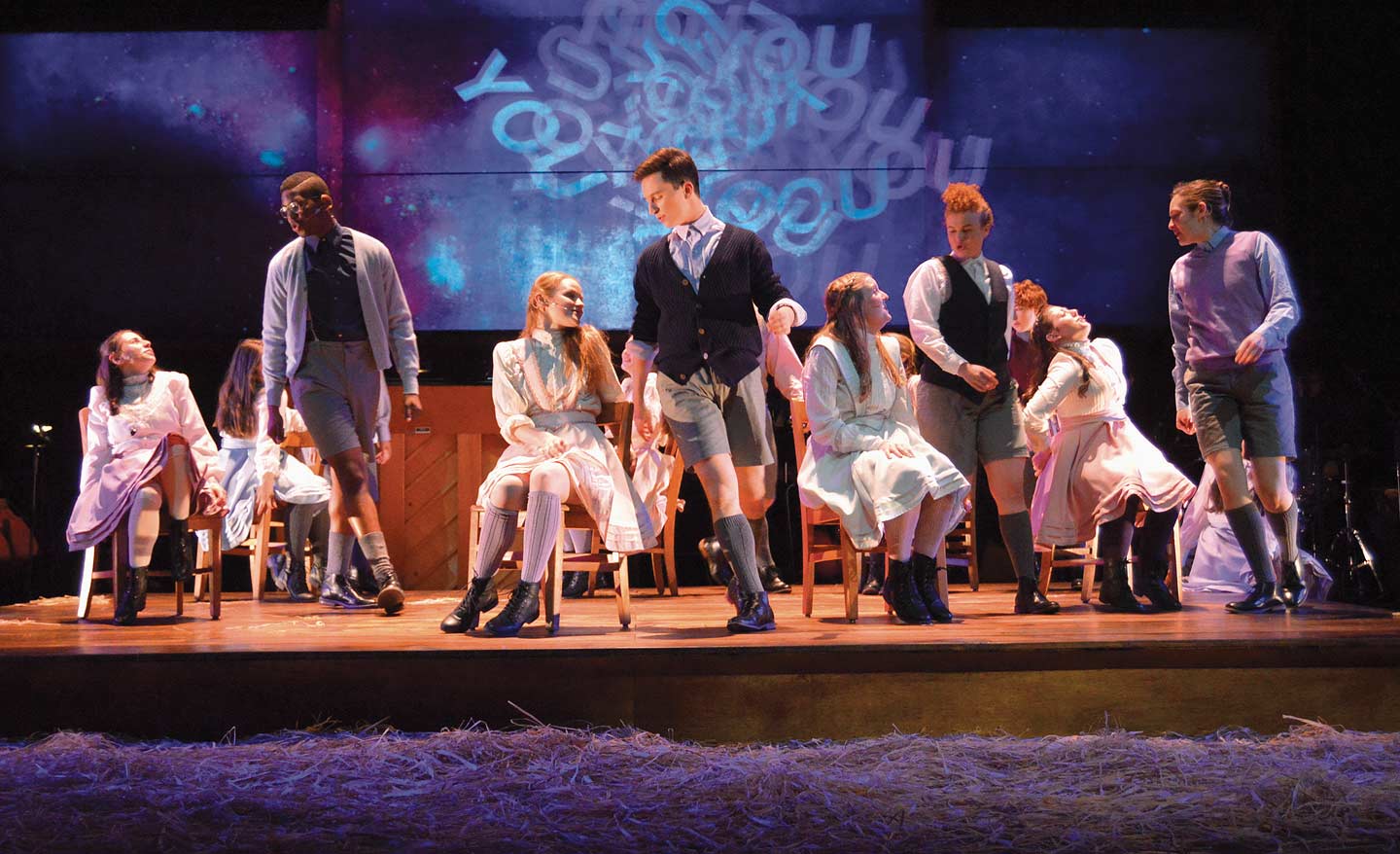Smashing stereotypes
Conn has a history of exploring social justice through the arts.
In the Rodgers and Hammerstein musical “Carousel,” Billy Bigelow hits Julie Jordan, and 15 years later their daughter Louise asks, “Is it possible, Mama, for someone to hit you, real loud and hard, and for it not to hurt at all?” Julie answers, “Yes, dear, it is possible.”
It’s incidents like these that are making Broadway producers rethink how to produce classic musicals such as “Carousel,” “My Fair Lady” and “Kiss Me, Kate,” musicals that seem to romanticize problematic relationships between women and men.
In The New York Times article “The Problem With Broadway Revivals: They Revive Gender Stereotypes, Too,” Michael Paulson points to Connecticut College’s production of “Carousel,” and the modern way Conn examined the relationship between Bigelow and Jordan through the lens of domestic violence.
“In 2016, Connecticut College students met with a local domestic violence organization while rehearsing the show, and wound up getting permission to change a line so Julie appears to reject, rather than accept, the idea that being hit hard might not hurt,” Paulson wrote.
In Conn’s production, Julie’s answer changes to, “No, dear, it’s not possible.”
The permission to alter the story came from Ted Chapin ’72, president and chief creative officer of the Rodgers & Hammerstein Organization. The local organization students worked with was Safe Futures, a New London-based nonprofit that helps people who have been affected by domestic violence. David Jaffe ’77, professor of theater and chair of the theater department, said this background work helped to inform the students about how to approach the production.
“We’re learning about that world. We’re acknowledging the troublesome issues of the play head on and are saying, ‘These are complex relationships. Let’s see if we can learn about them,’” said Jaffe, who directed Conn’s production of “Carousel.”
Conn has a history of exploring social justice through the arts and feels that a vibrant and fully integrated music and arts program serves as a powerful vehicle for advancing the social change that helps define the College’s mission.
The College’s “Spring Awakening” production is another example of how, through the arts, students explore contemporary issues. The Tony award-winning musical portrays the journey from adolescence to adulthood with a poignancy and passion that is illuminating and unforgettable. Based on the play by Frank Wedekind, the landmark musical is an electrifying fusion of morality, sexuality and rock and roll.
Professor of Dance David Dorfman ’81, who choreographed “Spring Awakening” and “Carousel,” said “theater does not exist in a vacuum but in relationship to history and the contemporary world.”
In both musicals “we had numerous conversations, some led by experts in various fields regarding topics such as domestic violence, abuse and gender representation, to help us navigate complex waters. In the end, we attempted to embody these complications and contradictions to the best of our abilities to render meaningful conversations with ourselves and audience members moving forward.”
